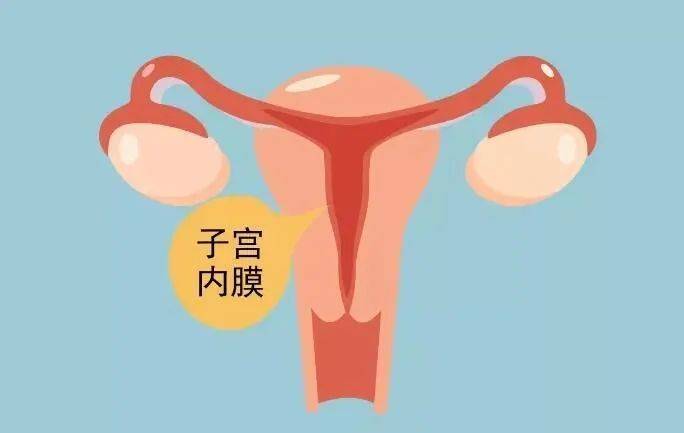We often metaphorically describe the endometrium as “soil,” and the fertilized egg as a “seed.” When the soil is barren, even high-quality seeds cannot take root and sprout successfully; conversely, if the seed quality is good and the soil is rich, the seeds can thrive. This illustrates the significant role of the endometrium in the process of nurturing life.
As a common condition in gynecology, endometrial thickening is clinically manifested as irregular uterine bleeding, prolonged menstrual periods, and heavy menstrual flow. What exactly is thickening of the endometrium? Does it affect fertility?
Normal endometrial thickness in women
The thickness of the endometrium is influenced by hormones and typically ranges from 5 to 10 mm. Due to individual variability and the cyclical changes of the endometrium, it is not fixed.
From the 5th day of the menstrual cycle, the endometrium is in the proliferative phase, continuously thickening until the 14th day of the menstrual cycle, with a potential increase of 3 to 4 mm;
In the latter half of the menstrual cycle, the endometrium enters the secretory phase, but continues to thicken, reaching up to 10 mm before menstruation begins.
Generally, shortly after conception, the thickness of the endometrium is around 10 mm. The optimal endometrial thickness for conception is approximately 8 mm, ideally during the luteal phase.
Causes of endometrial thickening
1. Hormonal imbalance. Excessive estrogen secretion, polycystic ovary syndrome, hyperthyroidism, the use of exogenous estrogen, infertility or sterility, and delayed menopause.
When estrogen secretion in the female body is unbalanced, and the endometrium is continuously affected by estrogen without the cyclical transitions of the secretory phase, it can lead to thickening of the endometrium.
2. Mental stress. Prolonged mental tension can easily lead to hormonal imbalances in the body, which can eventually cause endometrial lesions.
3. Gynecological diseases. Conditions such as ovarian cysts, uterine fibroids, endometriosis, endometritis, endometrial polyps, submucosal fibroids, endometrial hyperplasia, and endometrial cancer can also cause thickening of the endometrium.
4. Excess weight. Being overweight can lead to hormonal dysregulation in women, resulting in abnormal estrogen secretion from the ovaries, which can ultimately cause endometrial thickening.
5. Ovarian dysfunction. Ovarian dysfunction is one of the major causes of endometrial thickening, often manifested as irregular uterine bleeding. Some patients also experience shortened menstrual cycles and prolonged periods, with bleeding sometimes lasting up to a month.
Consequences of endometrial thickening
1. Hormonal imbalance can lead to premature aging of the face.
The thickening of the endometrium is related to hormone levels in women. The proliferation of the endometrium is primarily caused by hormonal imbalance, which can easily lead to the development of blemishes and dull skin in women.
2. Affects women’s ability to conceive.
The production of eggs and secretion of estrogen and progesterone during the ovarian cycle enhance blood flow to the endometrium, leading to thickening, which may affect a woman’s ability to conceive.
3. Heavy bleeding can lead to shock.
The common clinical symptom of endometrial thickening is the occurrence of irregular bleeding. If the condition is severe and bleeding is significant, it can lead to shock.
Both excessively thick or thin endometrium can impact fertility, and diagnostic measures such as ultrasound and hysteroscopy can be used to assess the endometrium. If the endometrium is either too thick or too thin, it is advisable to seek professional medical treatment.


